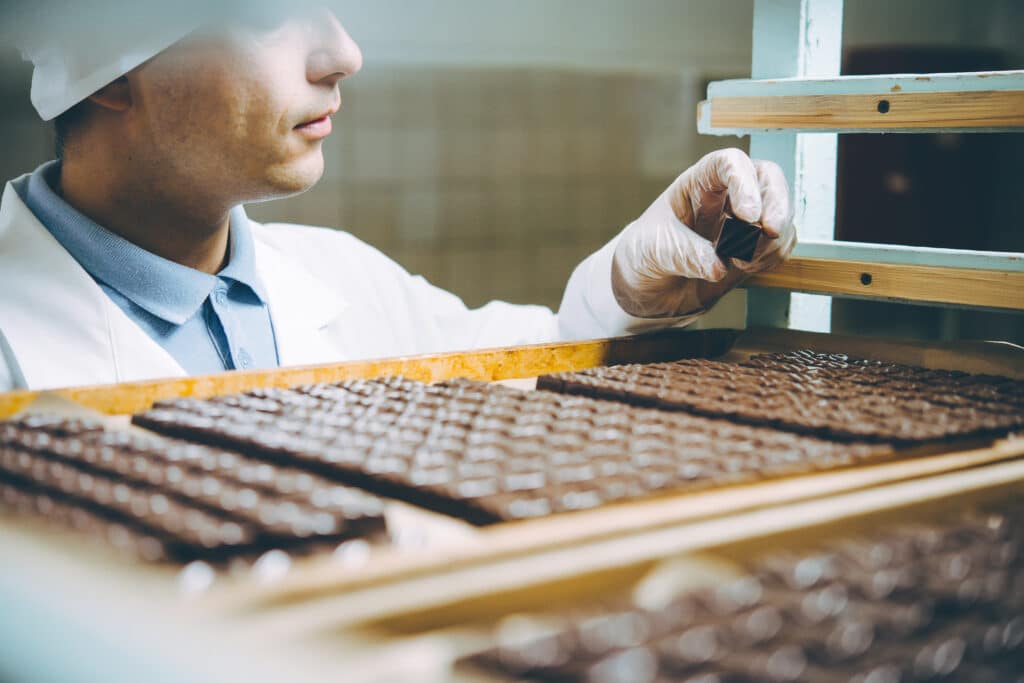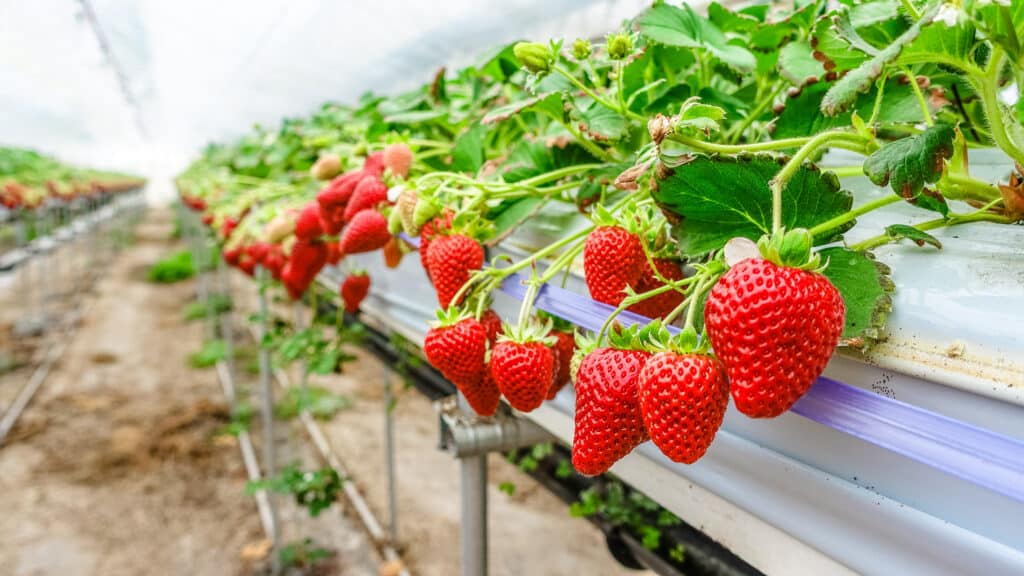Turning leftovers into solutions: How this UAE-based startup is rethinking food waste
The following article was originally published by the Khaleej Times on Fri 28 Mar 2025
Banana peels, carrot tops, the ends of green peppers, and zested lemon skins — most of us scrape them off the cutting board and into the trash without pause. But in a quiet facility on the outskirts of Dubai, those scraps are getting a second life. At The Waste Lab, a UAE-based, women-owned startup, organic waste is collected from homes and commercial kitchens and turned into nutrient-rich compost through a finely tuned decomposition process.
The result is a nutrient-rich compost that helps restore soil health and support farms across the UAE. For The Waste Lab, food waste isn’t just an environmental issue — it’s a sign of system inefficiency. Their model focuses on diverting organics from landfills and returning them to productive use.
“One big misconception is that food waste isn’t a serious issue — it’s just ‘biodegradable.’ But in landfills, food doesn’t break down the way it does in nature. It rots and releases methane,” says Lara Hussein, The Waste Lab co-founder and CEO.
But the broader waste system presents a tougher test. The UAE throws out an estimated 1.3 billion tons of food each year, and that figure is expected to jump to 2.2 billion this year alone, according to the UAE Ministry of Economy. It’s not just about sustainability — it’s also expensive. Researchers at Behavioural Insights estimate food waste in the UAE costs the country around $3.5 billion a year.
According to the “How the UAE Eats” report, 31 per cent of Emiratis admit to regularly discarding food ordered at restaurants, leading to significant financial losses. UAE diners, in particular, produce 35 per cent more food waste than the global average and nearly 20 per cent more than the Mena regional average, according to a report by Winnow. This gap is driven, in part, by the country’s hospitality culture, buffet dining, and tourism-heavy economy.
While the government has set an ambitious target to cut food waste in half by 2030 through the National Food Loss and Waste Initiative, that goal is tested each year during Ramadan — a time when food waste typically spikes, driven by over-prepared meals, large buffets, and a surge in produce consumption. According to Farrelly & Mitchell, an international food and agribusiness consultancy firm, demand for meat surges by nearly 50 per cent during Ramadan, along with spikes in grocery items like fruits, vegetables, and dairy products. To diminish food waste during the holidays and around iftars, Hussein said there needs to be portion planning, donation programmes, and of course, composting.
The seasonal spike in waste has become a clear pressure point — pushing both policymakers and private players to rethink how the country handles its food surplus, not just during Ramadan, but year-round.
Malachy Mitchell, co-founder and managing director of Farrelly Mitchell, takes a more optimistic view. “[The UAE] is currently developing a food losses and food waste (FLW) baseline and is creating a framework for ongoing FLW monitoring, which really places it ahead of the curve,” he said. He believes the government’s goal of cutting food waste in half by 2030 is attainable. “I believe it will be challenging but is possible through commitment.”
There are a few levers, Mitchell said, that could help drive meaningful change: stronger laws around food donation and waste separation, more investment in cold storage and logistics, and financial pressure on businesses to take food waste seriously. That pressure, he adds, could come in the form of tax breaks for those making progress — or penalties for those who don’t.
Mitchell’s recommendations echo the ne’ma “National Action at Scale” report, which outlines a national strategy focused on regulation, incentives and infrastructure to cut food waste. To build lasting solutions for food waste, ne’ma introduced key performance indicators (KPIs) to help track and reduce it. They also trained businesses on how to measure their food waste, report it, and take steps to cut it down — engaging with over 75 hotels and hospitality outlets.
Much of the UAE’s food waste — up to 85 per cent, according to industry estimates —doesn’t come from leftovers on a plate, but from overproduction in kitchens. That makes prevention a matter of process. Hospitality operators are being encouraged to take a more data-driven approach: using analytics to pinpoint waste hotspots, adjust ordering habits, and shift toward small-batch cooking. Meanwhile, back-of-house improvements — like better inventory management, temperature control, and staff training — can help reduce spoilage, prep errors, and trimming waste.
“Technology is an enabler,” Mitchell said. “Blockchain and IoT can support transparent tracking of food from production to consumption, enabling all stakeholders to identify and address inefficiencies collaboratively.” He adds that AI tools are already making an impact in sectors like hospitality. “They’ve shown significant results by making waste visible and manageable — what was once hidden in the back of the kitchen is now something teams can act on in real-time… data-driven approaches yield better results.”
Manal Bin Yaroof, head of the executive team at the UAE Food Bank, a government-backed non-profit that redistributes food across the country, also echoes this sentiment. “To tackle food waste, we focused on the hotel sector through a strategic partnership with National Food Loss and Waste Initiative “Ne’ma” and Reloop App initiated by Ecyclex International Recycling Company.” This UAE Food Bank Initiative engaged 63 hotels across Dubai. “As a result, we achieved a 47 per cent reduction in food waste during the month of Ramadan across these hotels between 2022 and 2024.” Participating hotels were given access to a smart dashboard to help their teams track daily food waste, which helped set a baseline for data-driven waste reduction strategies, Bin Yaroof explained.
To build on that progress, experts say it’s time for hospitality teams to take ownership: assign clear roles, track impact, and embed sustainable habits like composting into daily routines. That’s where businesses like The Waste Lab come in. For kitchens already making operational shifts, composting offers a practical next step. By properly separating and processing organic waste, restaurants can ensure that scraps don’t just disappear in landfills — they’re returned to the soil, supporting local farms and closing the loop. “Composting in the UAE isn’t always easy,” said CEO Lara Hussein. “The heat and dry conditions can make it tricky, but nature already knows how to break things down — we just have to adapt.”
At The Waste Lab’s control station, the process begins with a second round of sorting. Once collected, organic waste is inspected to remove potential contaminants and logged for quality, volume and other metrics — an extra layer of control before composting begins.
The material is then moved to the composting station where composting piles are built, and the team manages decomposition without industrial machinery. Instead, they rely on natural methods: adjusting moisture, regulating airflow, and using shade structures to offset the desert heat, Hussein explains.
Microbes do the work, breaking down the food waste gradually over a few weeks. It’s a hands-on, low-tech system. The final product is now being used to create green urban spaces and revive desert land, proving that even food scraps can help grow something where nothing was meant to grow.
But since the Waste Lab’s inception, the startup has diverted over 2 million kilograms of food waste from landfills. “In 2023 alone, we collected around 450,000 kg, marking an 833 per cent increase from the previous year,” The Waste Lab CEO said. “That translates to a significant reduction in CO2 emissions and thousands of kilograms of high-quality compost returned to the land,” Hussein said.
The Waste Lab began in 2021 with a focus on households, then expanded into the commercial space a year later — partnering with hospitality giants like Hilton and Majid Al-Futtaim. “Today, we work with clients like Dubai World Trade Centre, Expo City Dubai, Dubai Holding, Bustanica, Emirates Flight Catering, and several hotels and restaurants,” Hussein said. “They recognise that food waste management is not just about sustainability — it’s about efficiency, cost savings, and brand reputation.”
In parallel with private sector waste reduction strategies, the UAE Food Bank tackles food insecurity by redirecting surplus from hotels, supermarkets, and farms to communities in need.
Last year, the UAE Food Bank provided meals to 28.9 million people — reaching low-income families, laborers, and underserved communities — through ongoing donation drives, Ramadan campaigns, and partnerships focused on reducing food waste across the country. This marks a 55 per cent boost from the previous year, according to UAE Food Bank representatives. In practice, this looks like 5,466 tonnes of food being diverted from landfills.
“It has a global reach and has helped more than 85 million people worldwide, food banks can play an important role in reducing FLW,” Mitchell says about the UAE Food Bank. “The big challenge food banks have is the coordination of supply and demand at a local and international level.” This can be combated with better integration between non-profits with food producers, processors, and retailers to rescue surplus food effectively.
“One of the biggest challenges is logistics and infrastructure,” Bin Yaroof said on strategy at the UAE Food Bank. “Efficient food distribution requires robust cold storage, reliable transportation networks, and appropriate packaging solutions to maintain food safety and minimise spoilage.”
While food banks focus on large-scale redistribution, others are targeting waste much earlier in the chain — starting with how and what people buy.
At the household level, HeroGo, a UAE-based startup, works with farms and suppliers to collect surplus and imperfect produce — fruits and vegetables that are perfectly edible but often rejected by retailers. The “ugly” misshapen items are packed into bright green boxes and delivered to homes at a lower price, making sustainable shopping more accessible. By the close of 2023, HeroGo had diverted over 317,000 kilograms of produce from landfills and donated 26,000 meals, working toward a year-end target of 107,000.
In hotel kitchens across the UAE, Hilton is quietly redesigning the way breakfast is served — and what gets wasted. As part of its Green Breakfast Initiative, the hotel group rolled out a four-month pilot across 13 properties, using AI-powered tracking tools to monitor what was being thrown out, both behind the scenes and off guests’ plates. The result: a 62 per cent drop in food waste, translating to more than 400,000 meals saved and nearly 726 tonnes of CO2 emissions avoided.
Much of the change came from rethinking buffet prep — cutting back on overproduction, adjusting portion sizes, and training staff to respond to real-time data. Guests, too, were nudged toward more mindful choices with subtle signage and smaller serving plates. In a country where food waste runs high in the hospitality sector, it’s a clear sign of what’s possible when kitchens start paying closer attention to what ends up in the bin.
On the infrastructure side, GigaFarm is laying the groundwork for one of the region’s largest waste-to-resource operations. The 900,000-square-foot facility, part of Dubai’s Food Tech Valley, will be able to process 50,000 tonnes of food waste a year — converting scraps into compost, animal feed, and reclaimed water to support vertical farming on site. The idea is to create a fully closed-loop system, showing what circular agriculture can look like in a place where food security and sustainability are tightly linked.
A similar approach is already in motion further south, where Circa Biotech, an Abu Dhabi-based startup, is turning trash into feed — literally. Using black soldier fly larvae, Circa takes in organic waste from supermarkets and food producers and feeds it to the insects. Once grown, the larvae are processed into high-protein feed for poultry and aquaculture, while their frass (a nutrient-rich byproduct) is turned into organic fertilizer.
The startup, which launched its pilot facility in Masdar City, calls it a “nature-based solution” to two growing problems: mounting food waste and overreliance on imported feed. It’s local, scalable, and circular by design — exactly the kind of model the UAE is betting on to turn its waste into something useful.
“We complement these initiatives rather than compete with them. While food banks focus on edible surplus, and GigaFarm looks at high-tech solutions, we address the unavoidable food waste — the scraps, peels, leftovers that can’t be donated,” Hussein said. In light of the UAE’s steep reduction goals, Hussein says. “There’s been great progress, but we need more integration between initiatives… scaling is the next big step.”
“We’re expanding operations to Abu Dhabi and Sharjah,” The Waste Lab CEO said. It’s a gradual process — but even eggshells and used coffee grounds are laying the foundation.














